COVID-19
How to submit an article:
- Registered users can submit any published journal article that has a unique DOI (Digital Object Identifier) name or link to Research Hub.
- For example, you can paste the full DOI link:
https://doi.org/10.1109/5.771073or just the DOI name:10.1109/5.771073into the field above and click submit. - The person who is first to submit a valid article to Research Hub will forever be credited for it, and every article submission earns you +6 Research Points.
Related Topics
Published research studies are articles that present the findings of original research that has undergone a peer-review process and has been made publicly available in scholarly journals, books or other media.

Adjuvant pomegranate juice intake improves the inflammatory status of hospitalized COVID-19 patients: A randomized and placebo-controlled trial
2023 Aug Complementary Therapies in Medicine Yousefi M, Sadriirani M, Mahmoodi S, Samimi B, Pourmahmoudi A, Hosseinikia M, et al.
Randomised Controlled Trial Inflammation Common Cold, Flu & Viral Infections COVID-19 CRPPomegranate juice consumption appears to somewhat enhance inflammatory status and complete blood count in hospitalized COVID-19 patients.

Effectiveness and safety of Qingfei Dayuan granules for treating influenza and upper respiratory tract infections manifested by the pulmonary heat-toxin syndrome: A multicenter, randomized, double-blind, placebo-controlled trial
2023 Mar 15 Frontiers in Pharmacology Li W, Xie L, Zhu X, Yang Y, Wang L, Yang M, et al.
The trial showed that QFDY was an effective and safe treatment modality for influenza and URTIs manifested by PHTS because it shortened the complete fever relief time, accelerated clinical recovery, and alleviated symptoms such as cough, a stuffy and running nose, and sneezing during the course of treatment.
Randomised Controlled Trial Qingfei Dayuan Granules Influenza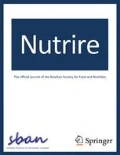
Myrtle: a versatile medicinal plant
2023 Feb 16 Nutrire Gorjian H, Khaligh NG
The study concludes that myrtle has multifaceted pharmacological effects, including antioxidant, antibacterial, and anti-inflammatory activities, and it holds potential in various fields such as COVID-19 management, diabetes, liver protection, hypertension, and as a natural remedy for certain health conditions.
Review Article
Xuanfei Baidu Decoction suppresses complement overactivation and ameliorates IgG immune complex-induced acute lung injury by inhibiting JAK2/STAT3/SOCS3 and NF-κB signaling pathway
2023 Jan Phytomedicine Li C, Li Y, Zhang H, Zhuo Y, Zhang L, Yang L, et al.
Xuanfei Baidu Decoction (XFBD) suppressed complement overactivation and ameliorated IgG immune complex-induced acute lung injury by inhibiting JAK2/STAT3/SOCS3 and NF-κB signaling pathway. These data contribute to understanding the mechanisms of XFBD in COVID-19 treatment.
Network Pharmacology COVID-19 Xuan Fei Bai Du decoction
Huashibaidu formula attenuates sepsis-induced acute lung injury via suppressing cytokine storm: Implications for treatment of COVID-19
2023 Jan Phytomedicine Zhang F, Guo F, Zhang Y, Xu H, Liu Y, Lin L, et al.
The therapeutic mechanism of Huashibaidu formula (HSBD) against sepsis-induced acute lung injury (ALI) mainly involved suppressing cytokine storms and relieving inflammatory symptoms by regulating the expression of TLR4/NF-κB and PI3K/Akt. Our study provides a scientific basis for the mechanistic investigation and clinical application of HSBD in the treatment of sepsis and COVID-19.
Network Pharmacology Acute Lung Injury Hua Shi Bai Du formula SepsisResearch insights are moderated by the Research Hub team and offer an at-a-glance overview of interesting research findings.

2023 Complementary Therapies in Medicine
Pomegranate juice consumption appears to somewhat enhance inflammatory status and complete blood count in hospitalized COVID-19 patients.
Randomised Controlled Trial Common Cold, Flu & Viral Infections CRP Inflammation
Adjuvant pomegranate juice intake improves the inflammatory status of hospitalized COVID-19 patients: A randomized and placebo-controlled trial
Yousefi M, Sadriirani M, Mahmoodi S, Samimi B, Pourmahmoudi A, Hosseinikia M, et al.
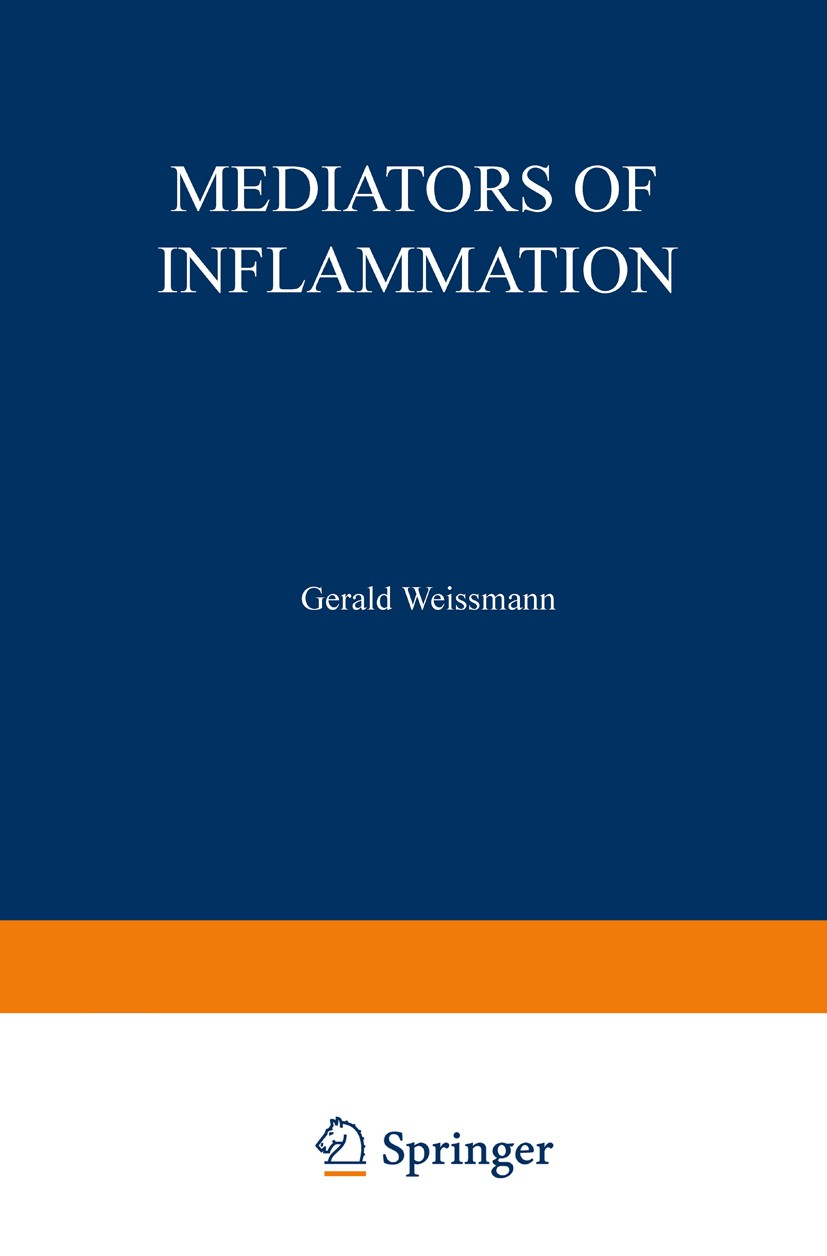
2022 Mediators of Inflammation
Drinking pomegranate juice and sumac can help reduce symptoms in outpatients diagnosed with COVID-19, alongside standard treatment.
Randomised Controlled Trial Pomegranate Sumac
The Effect of Pomegranate Juice and Sumac Consumption in the Treatment of Outpatients with COVID-19
Forouzanfar F, Ahmadpoor M, Farahi MM, Hadianfar A, Sahebkar A, Esmaily H, et al.
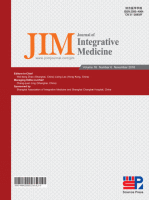
2022 Journal of Integrative Medicine
Traditional Chinese medicine (TCM) used alongside Western medicine for COVID-19 treatment shows potential benefits in terms of lung recovery, symptom improvement, and reducing the risk of severe cases.
Systematic Review
Traditional Chinese medicine treatment for COVID-19: An overview of systematic reviews and meta-analyses
Wu H, Ji C, Dai R, Hei P, Liang J, Wu X, et al.
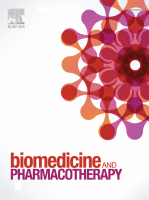
2022 Biomedicine & Pharmacotherapy
Pomegranate extract and its phytochemicals can potentially inhibit severe acute respiratory syndrome coronavirus 2 (SARS-COV-2) and improve gut microbiota, preventing obesity and diabetes.
Review Article Gut Microbiota Obesity Pomegranate Type 2 Diabetes
Medicinal uses, pharmacological activities, phytochemistry, and the molecular mechanisms of Punica granatum L. (pomegranate) plant extracts: A review
Maphetu N, Unuofin JO, Masuku NP, Olisah C, Lebelo SL
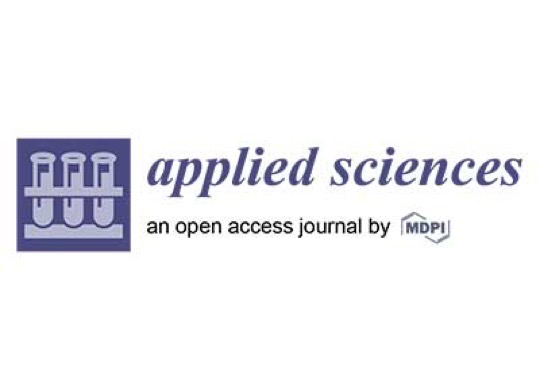
2022 Applied Sciences
Honey, owing to its bioactive compounds, demonstrates potential in treating COVID-19 symptoms by reducing oxidative damage and enhancing the immune system.
Review Article Anti-Inflammatory Antioxidant Honey Immunity
Honey as an Adjuvant in the Treatment of COVID-19 Infection: A Review
Soares S, Bornet M, Grosso C, Ramalhosa MJ, Gouvinhas I, Garcia J, et al.
Review Articles
Review articles summarise and critically evaluate the current state of research on a specific topic or field by synthesising multiple primary research studies.

Myrtle: a versatile medicinal plant
2023 Feb 16 Nutrire Gorjian H, Khaligh NG
The study concludes that myrtle has multifaceted pharmacological effects, including antioxidant, antibacterial, and anti-inflammatory activities, and it holds potential in various fields such as COVID-19 management, diabetes, liver protection, hypertension, and as a natural remedy for certain health conditions.
Review Article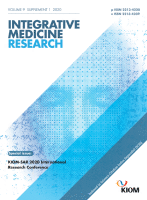
The role of acupuncture and moxibustion in the treatment, prevention, and rehabilitation of patients with COVID-19: A scoping review
2022 Dec Integrative Medicine Research Ren M, Liu Y, Ni X, Kuang Z, Luo X, Zhang Y, et al.
Acupuncture and moxibustion are effective in the treatment of COVID-19 patients to some extent.
Review Article
The potential for traditional Chinese therapy in treating sleep disorders caused by COVID-19 through the cholinergic anti-inflammatory pathway
2022 Oct 10 Frontiers in Pharmacology Xie X, Zhang N, Fu J, Wang Z, Ye Z, Liu Z
The reasons for the sleep disorders caused by the novel coronavirus and found that inflammation was the main reason leading to sleep distress in patients. And we reviewed the mechanisms of three common traditional Chinese in inhibiting inflammation through CAP and relieving the sleep or symptoms. We, therefore, propose that TCT may be a potential strategy to take for the treatment of sleep problems due to inflammation caused by COVID-19.
Review Article COVID-19
Traditional Chinese medicine treatment for COVID-19: An overview of systematic reviews and meta-analyses
2022 Sep Journal of Integrative Medicine Wu H, Ji C, Dai R, Hei P, Liang J, Wu X, et al.
Systematic Review Meta-AnalysisTraditional Chinese medicine (TCM) used alongside Western medicine for COVID-19 treatment shows potential benefits in terms of lung recovery, symptom improvement, and reducing the risk of severe cases.

Medicinal uses, pharmacological activities, phytochemistry, and the molecular mechanisms of Punica granatum L. (pomegranate) plant extracts: A review
2022 Sep Biomedicine & Pharmacotherapy Maphetu N, Unuofin JO, Masuku NP, Olisah C, Lebelo SL
Review Article Type 2 Diabetes Gut Microbiota Obesity Pomegranate COVID-19Pomegranate extract and its phytochemicals can potentially inhibit severe acute respiratory syndrome coronavirus 2 (SARS-COV-2) and improve gut microbiota, preventing obesity and diabetes.
Clinical Trials
Clinical trials are research studies that involve people and are conducted to evaluate the safety and efficacy of new treatments or interventions, such as drugs, medical devices, or behavioural therapies.

Adjuvant pomegranate juice intake improves the inflammatory status of hospitalized COVID-19 patients: A randomized and placebo-controlled trial
2023 Aug Complementary Therapies in Medicine Yousefi M, Sadriirani M, Mahmoodi S, Samimi B, Pourmahmoudi A, Hosseinikia M, et al.
Randomised Controlled Trial Inflammation Common Cold, Flu & Viral Infections COVID-19 CRPPomegranate juice consumption appears to somewhat enhance inflammatory status and complete blood count in hospitalized COVID-19 patients.

Effectiveness and safety of Qingfei Dayuan granules for treating influenza and upper respiratory tract infections manifested by the pulmonary heat-toxin syndrome: A multicenter, randomized, double-blind, placebo-controlled trial
2023 Mar 15 Frontiers in Pharmacology Li W, Xie L, Zhu X, Yang Y, Wang L, Yang M, et al.
The trial showed that QFDY was an effective and safe treatment modality for influenza and URTIs manifested by PHTS because it shortened the complete fever relief time, accelerated clinical recovery, and alleviated symptoms such as cough, a stuffy and running nose, and sneezing during the course of treatment.
Randomised Controlled Trial Qingfei Dayuan Granules Influenza
The Effect of Pomegranate Juice and Sumac Consumption in the Treatment of Outpatients with COVID-19
2022 Nov 30 Mediators of Inflammation Forouzanfar F, Ahmadpoor M, Farahi MM, Hadianfar A, Sahebkar A, Esmaily H, et al.
Randomised Controlled Trial Clinical Study COVID-19 Sumac PomegranateDrinking pomegranate juice and sumac can help reduce symptoms in outpatients diagnosed with COVID-19, alongside standard treatment.
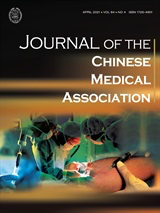
A Houttuynia cordata–based Chinese herbal formula improved symptoms of allergic rhinitis during the COVID-19 pandemic
2022 Apr 14 Journal of the Chinese Medical Association Chang KW, Lin TY, Fu SL, Ping YH, Chen F, Kung YY
Zheng-Yi-Fang (ZYF) has potential effects to relieve nasal symptoms for allergic rhinitis (AR) during the COVID-19 pandemic.
Randomised Controlled Trial Hay Fever Yu Xing Cao Zheng Yi Fang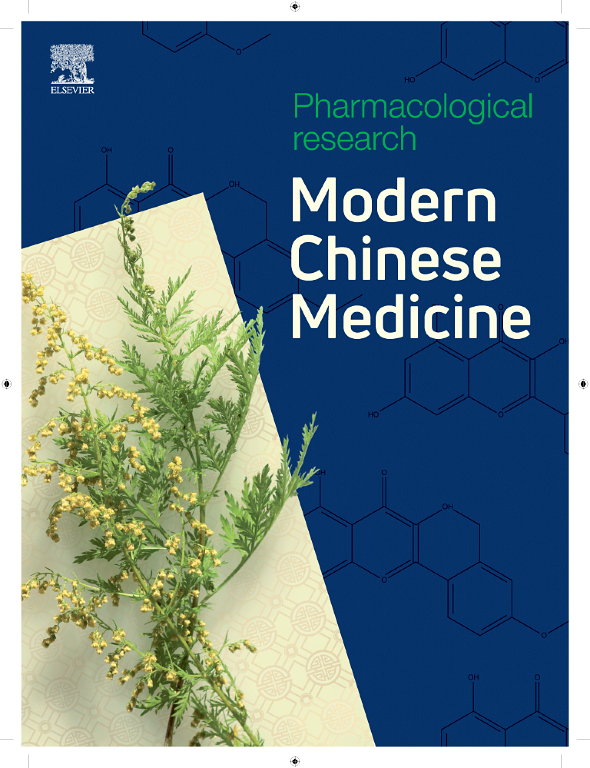
Jing Si Herbal Drink as a prospective adjunctive therapy for COVID-19 treatment: Molecular evidence and mechanisms
2022 Mar Pharmacological Research - Modern Chinese Medicine Lu PH, Tseng CW, Lee JL, Lee EY, Lin YP, Lin IH, et al.
Review Article Randomised Controlled Trial Gan Cao COVID-19 Immunity Anti-Inflammatory Antioxidant Jing Si Herbal Drink Yu Jen Cao Ai Ye Antiviral Mai Dong Chrysanthemum Jie GengThe Jing Si Herbal Drink, composed of various antiviral, antioxidant and anti-inflammatory herbs, has been confirmed as potentially effective in treating COVID-19 symptoms.
Study Protocols
Published study protocols are detailed plans that outline the objectives, methodology, statistical analyses, and organisation of a research study that have been made publicly available for others to review and use as a reference.

Traditional Chinese medicine combined with Moxibustion in the treatment of “long-COVID”: A protocol for systematic review and meta-analysis
2022 Oct 28 Medicine Luo D, Liu B, Wang P, Liao H, Mao S, Chen H, et al.
This study will evaluate whether traditional Chinese medicine combined with moxibustion can effectively treat the symptoms of COVID-19 sequelae. It will also provide evidence whether there is benefit of traditional Chinese medicine combined with moxibustion in the treatment of COVID-19 sequelae. At the same time, our research results will provide a reference for clinical decision-making and guiding development in the future.
Study Protocol COVID-19 Chinese Medicine Long-COVID
Effectiveness and safety analysis of SanHanHuaShi granules for the treatment of coronavirus disease 2019: Study protocol and statistical analysis plan for a randomized, parallel-controlled, open-label clinical trial
2022 Aug 16 Frontiers in Pharmacology Liu Y, Chen X, Wang H, Yao C, Gou X, Gao Z, et al.
The results of this study will provide robust evidence to confirm the effectiveness and safety of SHHS in the treatment of COVID-19.
Study Protocol SanHanHuaShi Granules
Acupuncture for nasal congestion in COVID-19
2022 Jan 14 Medicine Dong Z, Guo J, Deng T, Zhang J, Lv X, Zhang K, et al.
Our findings will provide references for future clinical decision and guidance development.
Study Protocol
The effect of acupuncture on the quality of life of patients recovering from COVID-19
2020 Jul 24 Medicine Wen D, Wu L, Dong Y, Huang J, Ren K, Jiang J, et al.
The conclusion of our study will provide an evidence to judge whether acupuncture is an effective intervention for patients suffered from COVID-19.
Study Protocol
The effectiveness and safety of traditional Chinese medicine for the treatment of children with COVID-19
2020 Jul 24 Medicine Li Y, Bi L, Li Y, Hu X, Wang Q, Liang X, et al.
This systematic review protocol is designed to provide evidence regarding the effectiveness and safety of traditional Chinese medicine for the treatment of children with COVID-19, such evidence may be useful and important for clinical treatment decisions.
Study Protocol COVID-19Presentation Slides

Randomised Controlled Trial
Pomegranate juice consumption appears to somewhat enhance inflammatory status and complete blood count in hospitalized COVID-19 patients.
Yousefi M, Sadriirani M, Mahmoodi S, Samimi B, Pourmahmoudi A, Hosseinikia M, Sadeghi O, Roustaei N, Saeedinezhad Z, Espín JC, Ansari S, Panahande SB

Randomised Controlled Trial
Drinking pomegranate juice and sumac can help reduce symptoms in outpatients diagnosed with COVID-19, alongside standard treatment.
Forouzanfar F, Ahmadpoor M, Farahi MM, Hadianfar A, Sahebkar A, Esmaily H, Nematy M, Rakhshandeh H

Systematic Review
Traditional Chinese medicine (TCM) used alongside Western medicine for COVID-19 treatment shows potential benefits in terms of lung recovery, symptom improvement, and reducing the risk of severe cases.
Wu H, Ji C, Dai R, Hei P, Liang J, Wu X, Li Q, Yang J, Mao W, Guo Q

Review Article
Pomegranate extract and its phytochemicals can potentially inhibit severe acute respiratory syndrome coronavirus 2 (SARS-COV-2) and improve gut microbiota, preventing obesity and diabetes.
Maphetu N, Unuofin JO, Masuku NP, Olisah C, Lebelo SL

Review Article
Honey, owing to its bioactive compounds, demonstrates potential in treating COVID-19 symptoms by reducing oxidative damage and enhancing the immune system.
Soares S, Bornet M, Grosso C, Ramalhosa MJ, Gouvinhas I, Garcia J, Rodrigues F, Delerue-Matos C
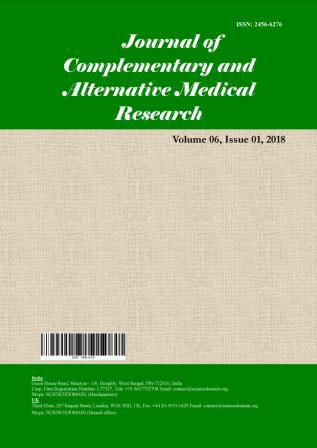
Review Article
Acupuncture has shown to be potentially beneficial as an alternate or adjunct therapy for patients with Bell's palsy following recovery from COVID-19.
Yepthomi T, Somanadhapai S
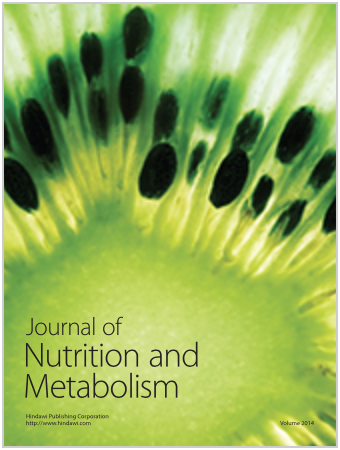
Review Article
Pomegranate juice, due to its unique bioactive compounds, could potentially alleviate complications related to SARS-CoV-2 infections, especially in patients with pre-existing chronic diseases.
Banihani SA

Review Article
The Jing Si Herbal Drink, composed of various antiviral, antioxidant and anti-inflammatory herbs, has been confirmed as potentially effective in treating COVID-19 symptoms.
Lu PH, Tseng CW, Lee JL, Lee EY, Lin YP, Lin IH, Yu MC, Lu KC, Kuo KL

Review Article
Curcumin, a spice used in Indian cooking, shows potential therapeutic effects in various retinal diseases, including during the COVID era.
Chandrasekaran PR, Madanagopalan VG
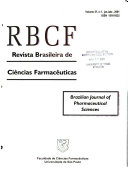
Review Article
High doses of vitamin C, vitamin D supplementation and natural honey can potentially decrease fatalities and support the management of COVID-19.
Rabby MII, Hossain F, Islam MA, Islam AKMS, Akhi IJ, Akter F

Systematic Review
Chinese herbal medicine combined with conventional therapy may be effective and safe in the treatment of mild to moderate COVID-19.
Du X, Shi L, Cao W, Zuo B, Zhou A
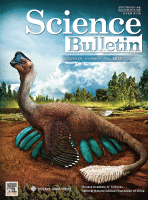
Qingfei Paidu Decoction might significantly inhibit IL-6 and TNF-α signaling pathways in regulating COVID-19-related cytokine storm.
Yifei Dai, Weijie Qiang, Yu Gui, Xue Tan, Tianli Pei, Kequan Lin, Siwei Cai, Liang Sun, Guochen Ning, Jianxun Wang, Hongyan Guo, Yimin Sun, Jing Cheng, Lan Xie, Xun Lan, Dong Wang

Traditional Chinese medicine could reduce the all-cause mortality in COVID-19 patients, inhibit virus replication and transcription, and attenuate the cytokine storm and immune deficiency caused by the SARS-CoV-2.
Xuedong An, YueHong Zhang, Liyun Duan, De Jin, Shenghui Zhao, RongRong Zhou, Yingying Duan, Fengmei Lian, Xiaolin Tong
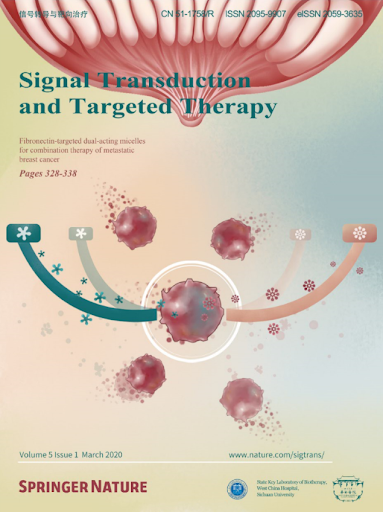
125 anti-COVID-19 traditional Chinese medicine formulae were identified with anti-inflammatory or immune-activating functions.
Qiao, L., Huang, W., Zhang, X. et al.

Among the patients hospitalized for COVID-19, the use of Qingfei Paidu Tang was associated with halving the risk of mortality, without raising the risk of acute liver injury or acute kidney injury.
Lihua Zhang, Xin Zheng, Xueke Bai, Qing Wang, Bowang Chen, Haibo Wang, Jiapeng Lu, Shuang Hu, Xiaoyan Zhang, Haibo Zhang, Jiamin Liu, Ying Shi, Zhiye Zhou, Lanxia Gan, Xi Li, Jing Li

Review Article
Bee honey and propolis could have potential beneficial effects as supporting treatments for COVID-19, enhancing immunity and inhibiting viral activity.
Ali AM, Kunugi H
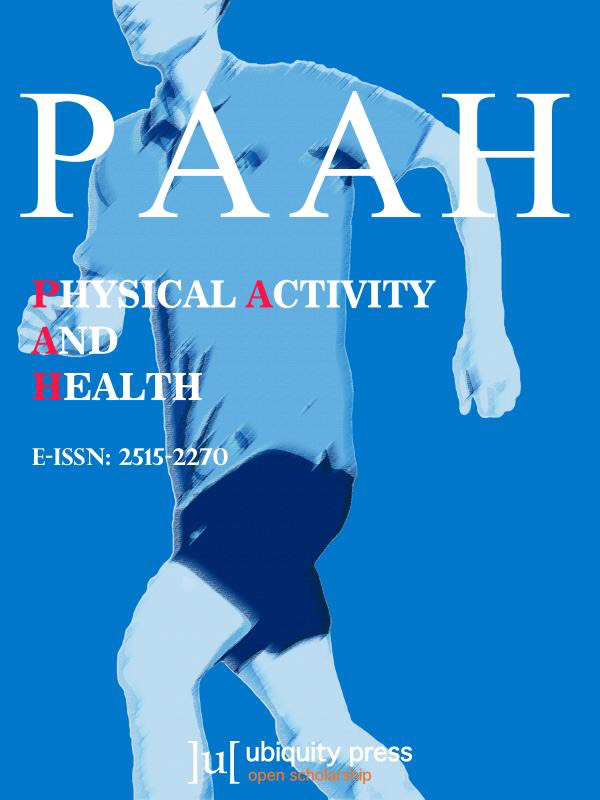
Systematic Review
All schools of Tai Chi chuan can improve the mental health of the elderly.
Xianjian C, Datao X

Review Article
Honey's phytochemical components and bioactive compounds have potential antiviral effects, potentially making it an effective natural product against COVID-19.
Al-Hatamleh MAI, Hatmal MM, Sattar K, Ahmad S, Mustafa MZ, Bittencourt MDC, Mohamud R
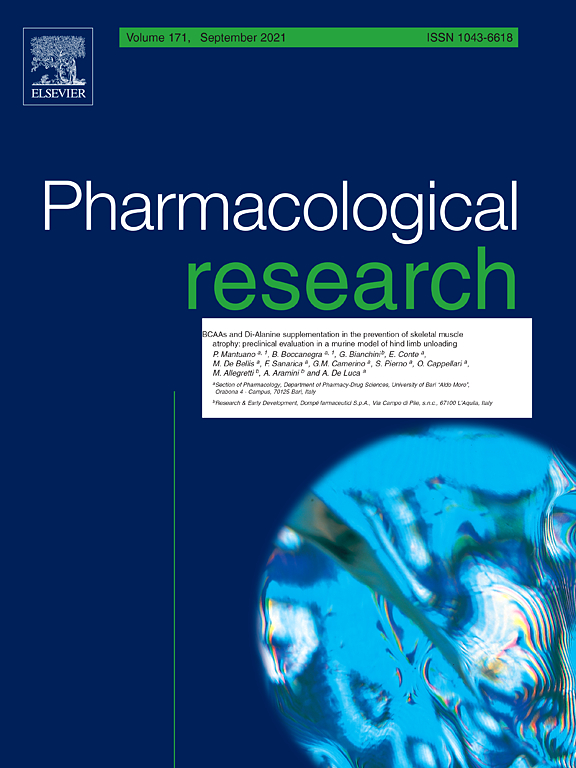
Systematic Review
Chinese herbal formulas could be used as potential candidates for treatment of COVID-19.
Xiong, X., Wang, P., Su, K., Cho, W. C., & Xing, Y.
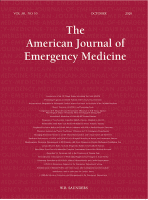
Systematic Review
Chinese medicine combined with conventional treatment significantly improved clinical efficacy, increased viral nucleic acid negative conversion rate, prominently reduced pulmonary inflammation, and improved host immune function.
Sun, C. Y., Sun, Y. L., & Li, X. M.
Executive Summary
Write an executive summary in the form of a blog article on the topic of "Research into Chinese medicine treatment for COVID-19" summarising the research below and using language that can be easily understood by patients and avoiding medical jargon using a professional and caring tone of voice.
Write an executive summary in the form of a blog article on the topic of "Researched Chinese medicine treatments for COVID-19" summarising the research below in an objective and easy to understand way, and using language that can be easily understood by patients. Group the article into Chinese medicine treatments first, followed by nutrition and other treatments. Avoid using medical jargon and use a professional and caring tone of voice.
Write me a concise but easy to understand executive summary on the topic of "Chinese medicine treatments for COVID-19" based on the following research that I will give you. Your summary should be 2 paragraphs long in Australian English spelling and include references to the studies.
A Randomised Controlled Trial published in 2023 in the journal Complementary Therapies in Medicine found that Pomegranate juice consumption appears to somewhat enhance inflammatory status and complete blood count in hospitalized COVID-19 patients. The study was a randomized, double-blinded placebo-controlled trial involving 48 patients and had two parallel arms. As part of their standard hospital care, patients were either given 500 mL of whole pomegranate juice daily or a placebo for a period of 14 days. The researchers focused on measuring inflammatory indicators and complete blood counts both at the start of the study and at the end of the 14-day intervention period. Following the 14-day intervention, there was a distinguishable decrease in primary outcomes including inflammatory markers such as C reactive protein, interleukin-6, and erythrocyte sedimentation rate in the group that consumed pomegranate juice as compared to the readings before the intervention. In addition, considerable changes were also observed in secondary outcomes such as neutrophils, lymphocytes, platelets, platelets-to-lymphocyte and neutrophils-to-lymphocyte ratios in the pomegranate juice group compared to the parameters before the intervention. Finally, the mean changes in levels of interleukin-6, white blood cells, neutrophils, lymphocyte, platelets, platelets-to-lymphocyte ratio, blood oxygen saturation and MCV were significantly different between the two groups by the end of intervention, while no significant difference was noted in other blood indices.
A Randomised Controlled Trial published in 2022 in the journal Mediators of Inflammation found that Drinking pomegranate juice and sumac can help reduce symptoms in outpatients diagnosed with COVID-19, alongside standard treatment. In the applied methodology, two groups were randomly formed from 182 outpatients with COVID-19. The first group had a diet containing pomegranate juice and sumac, in addition to their standard treatment. The second group, the control group, stuck to the standard treatment only. The results from the study show that outpatients with COVID-19 who consumed a diet containing pomegranate juice and sumac, along with their standard treatment, experienced a significant decrease in their symptoms. Such symptoms include fever, chills, coughing, weakness, smell and taste disorders, shortness of breath, diarrhea, nausea and vomiting, and abdominal pain. This decrease in symptoms was in comparison to the outpatients with COVID-19 who underwent only the standard treatment. Overall, the consumption of pomegranate juice and sumac has shown to be beneficial in reducing COVID-19 related symptoms.
A Systematic Review published in 2022 in the journal Journal of Integrative Medicine found that Traditional Chinese medicine (TCM) used alongside Western medicine for COVID-19 treatment shows potential benefits in terms of lung recovery, symptom improvement, and reducing the risk of severe cases. Reviews conducted between 2020 and 2021, focused on various TCM interventions combined with Western medicine. The evidence suggests that TCM, when used alongside Western medicine, has a positive impact on several outcomes, including lung recovery, clinical symptom improvement, and reduced risk of severe cases. Overall, TCM appears to offer potential benefits in COVID-19 treatment, but further research is needed.
A Review Article published in 2022 in the journal Biomedicine & Pharmacotherapy found that Pomegranate extract and its phytochemicals can potentially inhibit severe acute respiratory syndrome coronavirus 2 (SARS-COV-2) and improve gut microbiota, preventing obesity and diabetes. The study employs the use of in silico molecular docking methodologies to demonstrate that extract from pomegranates and their phytochemicals can serve as inhibitors of severe acute respiratory syndrome coronavirus 2's spike protein and the angiotensin-converting enzyme 2 receptor contact. These findings are further reinforced by clinical trials which suggest that pomegranates can also alleviate non-alcoholic fatty liver disease, metabolic syndrome, dental infections, and symptoms of menopause. This study has also identified numerous active compounds within pomegranates such as alkaloids, anthocyanidins, tannins, flavonoids, phenolics, proanthocyanidins, sterols, terpenes, terpenoids, xanthonoids, fatty acids, organic acids, lignans, saccharides, and vitamin C. This mixture of active compounds is believed to significantly contribute to the broad array of pharmacological activities identified within the pomegranate. This includes anti-diabetic, anti-tumor, anti-inflammatory, anti-malaria, anti-fibrotic, anti-fungal, and anti-bacterial effects. The extract from this fruit improves gut microbiota which could potentially aid in the prevention of obesity and diabetes.
A Review Article published in 2022 in the journal Applied Sciences found that Honey, owing to its bioactive compounds, demonstrates potential in treating COVID-19 symptoms by reducing oxidative damage and enhancing the immune system. The review outlines the SARS-CoV-2 virus's mechanisms of action, which is responsible for COVID-19, offering a comprehensive understanding. It also explores the various bioactive assets honey has at its disposal, primarily focusing on its beneficial properties. The discussion elaborates on the potentials of honey's biological properties, especially its antioxidant and anti-inflammatory activities. These characteristics of honey, as suggested by the review, could contribute to the relief of oxidative damage and boost the immune system, thereby proving beneficial in combating viral infections, including COVID-19.
A Review Article published in 2022 in the journal Journal of Complementary and Alternative Medical Research found that Acupuncture has shown to be potentially beneficial as an alternate or adjunct therapy for patients with Bell's palsy following recovery from COVID-19. In the methodology utilized for this research, an extensive literature search was carried out by two independent investigators. They used multiple sources including PubMed, MEDLINE, Google scholar, LILACS, and the Cochrane Register of Controlled Trials, from the year 2000 up until 2021. They used the keywords: Bell’s Palsy, covid-19, acupuncture, Mucormycosis, vaccine, and steroids. Selected articles were only those published in English and included full-text. The studies included in the review were all randomized controlled trials which compared acupuncture intervention's clinical effects (used alone or add on) with no treatment. In terms of results, although the methodological quality of most studies was considered generally low, six randomized controlled trials were found to be satisfactory and included in the study. According to the results across these studies, the groups who received acupuncture treatment reported improved outcomes compared to their baseline or control groups. This was evident as no negative side effects were reported. The review therefore indicates that acupuncture could play a beneficial role in treating patients with Bell's palsy post-recovery from COVID-19, particularly those at risk of mucormycosis and other severe health complications.
A Review Article published in 2022 in the journal Journal of Nutrition and Metabolism found that Pomegranate juice, due to its unique bioactive compounds, could potentially alleviate complications related to SARS-CoV-2 infections, especially in patients with pre-existing chronic diseases. The methodology employed in this research involved reviewing and discussing currently available published evidence of the beneficial effects of pomegranate juice during conditions of viral infections. The team exploited databases such as PubMed and Scopus to access relevant references. They centered their investigation around the hypothesis that the bioactive compounds in fresh pomegranate juice are advantageous in various chronic diseased conditions, thereby making the juice potentially beneficial for SARS-CoV-2 infected patients. In the discussion of results, the researchers found compelling evidence supporting the idea that pomegranate juice can be helpful in the contexts of SARS-CoV-2 infections, particularly for those patients who have a clinical history of chronic diseases like hypertension, cardiovascular disease, diabetes, and cancer. Notably, they point out that it is the unique bioactive compounds in the juice that make it beneficial for such situations.
A Review Article published in 2022 in the journal Pharmacological Research - Modern Chinese Medicine found that The Jing Si Herbal Drink, composed of various antiviral, antioxidant and anti-inflammatory herbs, has been confirmed as potentially effective in treating COVID-19 symptoms. The methodology incorporated in this study involves analyzing the efficacy of the component herbs present in Jing Si Herbal Drink (JSHD). This was done through in vivo and in vitro testing to understand their potential in treating COVID-19. JSHD comprises a combination of 5 antiviral, 7 antioxidant, 7 anti-inflammatory herbs. Furthermore, it includes 2 herbs that inhibit the overactive immune system, one herb that reduces cell apoptosis, and another with antithrombotic ability. These constituent herbs were evaluated for their impact on the pathogenesis of COVID-19. Discussion of the results showed that the ingredients in JSHD have demonstrated potential effectiveness against COVID-19. The active ingredients in the drink were effective in providing symptomatic relief for infected patients. The antiviral, antioxidant, and anti-inflammatory herbs, along with those altering immune response, inhibiting cellular apoptosis and providing antithrombotic capacity, were all found beneficial against the disease. Thus, JSHD holds promise as a useful adjuvant or supplementary treatment in handling COVID-19.
A Review Article published in 2022 in the journal Graefe's Archive for Clinical and Experimental Ophthalmology found that Curcumin, a spice used in Indian cooking, shows potential therapeutic effects in various retinal diseases, including during the COVID era. The research used PubMed and MEDLINE databases to examine a wide range of studies pertaining to the role of curcumin in various retinal diseases and its use during the COVID era. Specific diseases investigated include diabetic retinopathy, age-related macular degeneration, retinitis pigmentosa, retinal ischemia reperfusion injury, and proliferative vitroretinopathy. In these studies, curcumin's performance was tested in different experimental models, where it demonstrated pleiotropic effects through its action on various cell types like HRPC, HREC and ARPE-19. The research also evaluated the molecule's impact on retinal endothelial cells and its ability to inhibit actions of certain proteins and genes implicated in retinal disease. Moreover, the search also included curcumin's influence in the COVID-19 landscape. Discussing the results, curcumin proved efficacious in retinal disease management by increasing antioxidant enzymes, reducing inflammatory mediators, and inhibiting growth factors. In the context of diabetic retinopathy specifically, curcumin acted by reducing Reactive Oxygen Species (ROS) and inhibiting apoptosis-inducing proteins. Furthermore, curcumin downregulated several inflammatory molecules and hindered retinoblastoma cell proliferation, migration, and apoptosis. In the COVID era, curcumin showcased its potential by inhibiting viral replication and cytokine storm.
A Review Article published in 2022 in the journal Brazilian Journal of Pharmaceutical Sciences found that High doses of vitamin C, vitamin D supplementation and natural honey can potentially decrease fatalities and support the management of COVID-19. The team undertook a systematic analysis of existing literature and pertinent clinical trials to evaluate the potential of vitamin C, vitamin D, and natural honey intervention during the progression of the COVID-19 pandemic. This assessment aimed to determine the impact of these substances upon the outcomes of COVID-19, particularly in reducing respiratory damage and potentially improving patient immunity. The research revealed that substantial doses of vitamin C illustrated to lower lung damage and reduce intensive care stay duration for COVID-19 patients. It was observed that vitamin D deficiency is common among individuals living in institutions, and having supplements could aid in defending against respiratory infections. Natural honey, due to its antiviral effects and immune-enhancement capacities, also displayed promising results in treating COVID-19. The acquired evidence drove the belief that administering vitamin C, vitamin D, and natural honey, along with the existing treatment protocols, could potentially be a compelling method to decrease fatalities associated with COVID-19.
A Systematic Review published in 2021 in the journal PLOS One found that Chinese herbal medicine combined with conventional therapy may be effective and safe in the treatment of mild to moderate COVID-19. Twelve eligible RCTs including 1393 participants were included in this meta-analysis. Our meta-analyses found that lung CT parameters and the clinical cure rate of Chinese herbal medicine combined with conventional therapy in the treatment of mild to moderate COVID-19 were better than those of conventional therapy. The rate of conversion to severe cases, TCM symptom score of fever, cough cases, TCM symptom score of cough, TCM symptom score of fatigue, and CRP of combination therapy was significantly lower than that of conventional therapy. The WBC count was significantly higher than that of conventional therapy. Our meta-analysis results were robust through sensitivity analysis.
A published in 2021 in the journal Science Bulletin found that Qingfei Paidu Decoction might significantly inhibit IL-6 and TNF-α signaling pathways in regulating COVID-19-related cytokine storm. We evaluated the effects of 578 herbs and all 338 reported anti-COVID-19 TCM formulae on cytokine storm-related signaling pathways, and identified the key targets of the relevant pathways and potential active ingredients in these herbs. A total of 16 herbs was identified to have a significant inhibitory effect on the IL-6 pathway, while 37 herbs suppress the TNF-α pathway significantly. In the heatmap of gene expression induced by these herbs, more than half of the genes are down-regulated, suggesting that these herbs have a significant inhibitory effect on the expression of cytokine storm-related genes. By combining the HTS2 assay and herb scoring results, we constructed a formula-herb-gene-pathway network diagram of Qingfei Paidu Decoction. In this formula, we identified 4 herbs with an inhibitory effect on the IL-6 or TNF-α pathways, including Guizhi, which significantly inhibits the IL-6 pathway, and Shegan, Baizhu, and Zexie, which significantly inhibit the TNF-α pathway.
A published in 2021 in the journal Biomedicine & Pharmacotherapy found that Traditional Chinese medicine could reduce the all-cause mortality in COVID-19 patients, inhibit virus replication and transcription, and attenuate the cytokine storm and immune deficiency caused by the SARS-CoV-2. Presently, there is good evidence that TCM can effectively alleviate the symptoms of patients with suspected and confirmed COVID-19, delay the progression from mild and moderate to severe and critical disease, and reduce severe and critical all-cause mortality. The role of TCM is related to affecting the transcription, replication, and binding of SARS-CoV-2 to the host and attenuating the cytokine storm and weak immunity in patients with COVID-19.
A published in 2021 in the journal Signal Transduction and Targeted Therapy found that 125 anti-COVID-19 traditional Chinese medicine formulae were identified with anti-inflammatory or immune-activating functions. Our research suggested a good approach for evaluating the efficacy of anti-COVID-19 TCM formulae based on their immunoregulatory effects on a macrophage model. The state council of the People’s Republic of China recommended three patented medicines and three TCM formulae for the treatment of COVID-19 which have shown good anti-COVID-19 effects in clinical practice. Our system indicated that five of six formulae and medicines mentioned above possessed a negative normalized enrichment score (NES), including Qingfei Paidu Decoction (ranking 1/98), Lianhua Qingwen Capsule (ranking 6/98), Xuanfei Baidu Formula (ranking 14/98), Huashi Baidu Formula (ranking 20/98), and Jinhua Qinggan Granule (ranking 45/98). The remaining one, Xuebijing Injection (ranking 26/26), had a positive NES.
A published in 2021 in the journal Phytomedicine found that Among the patients hospitalized for COVID-19, the use of Qingfei Paidu Tang was associated with halving the risk of mortality, without raising the risk of acute liver injury or acute kidney injury. Of the 8939 patients included, 28.7% received QPT. The COVID-19 related mortality was 1.2% among the patients receiving QPT and 4.8% among those not receiving QPT. After adjustment for patient characteristics and concomitant treatments, QPT use was associated with a relative reduction of 50% in-hospital COVID-19 related mortality. This association was consistent across subgroups by sex and age. Meanwhile, the incidences of acute liver injury and acute kidney injury were comparable between patients receiving QPT and those not receiving QPT. The major study limitations included that the study was an observational study based on real-world data rather than a randomized control trial, and the quality of data could be affected by the accuracy and completeness of medical records. In this analysis based on a national registry of hospitalized patients with COVID-19, we first demonstrated that QPT use was associated with halving the risk of in-hospital mortality, without any significant increase in the risk of adverse effects, such as acute liver injury or acute kidney injury. Our findings have provided new evidence and insights regarding the treatment of COVID-19.
A Review Article published in 2021 in the journal Molecules found that Bee honey and propolis could have potential beneficial effects as supporting treatments for COVID-19, enhancing immunity and inhibiting viral activity. The study's methodology involved a comprehensive review of the literature on the potential anti-COVID-19 effects of bee honey and propolis, products known for their strong antimicrobial and antioxidant abilities. The researchers conducted molecular simulations to see how various flavonoids found in these products might inhibit essential viral processes. Additionally, they compared the effectiveness of propolis extracts delivered by nanocarriers to ethanolic extracts, and they examined the effects of a combination of honey and propolis on hospitalized COVID-19 patients. The findings from the review and simulations suggested that certain flavonoids in honey and propolis may inhibit the fusion of the virus spike with host cells, interactions that cause a cytokine storm, and viral replication. Propolis ethanolic extract, rutin, and propolis liposomes displayed inhibitory action against non-structural proteins of the virus in vitro while naringin inhibited viral infection in specific cells. When delivered via nanocarriers, propolis extracts showed enhanced antiviral effects against the virus compared to ethanolic extracts. Observations of hospitalized patients suggested that those treated with green Brazilian propolis or a honey-propolis combination experienced quicker viral clearance, symptom recovery, and hospital discharge, along with lower mortality rates.
A Systematic Review published in 2021 in the journal Physical Activity and Health found that All schools of Tai Chi chuan can improve the mental health of the elderly. Tai Chi's potential mechanisms include reducing anxiety, relieving depression and stress, enhancing pulmonary and cardiovascular function, enhancing immunity and improving quality of life.
A Review Article published in 2020 in the journal Molecules found that Honey's phytochemical components and bioactive compounds have potential antiviral effects, potentially making it an effective natural product against COVID-19. The methodology of this research utilizes a comprehensive review and analysis of existing literature regarding the antiviral effects and phytochemical components of honey. Previous studies have indicated that certain bioactive compounds present in honey, such as methylglyoxal, chrysin, caffeic acid, galangin, hesperidin, levan, and ascorbic acid, may exhibit antiviral effects or stimulate the body's antiviral immune responses. Through thorough examination of past works, the researchers isolated and focused on these compounds, exploring their potential utility in the context of COVID-19, a novel coronavirus that currently lacks established preventative or treatment measures. The results of the analysis pointed towards the efficacy of honey's bioactive compounds, which were found to potentially display both direct antiviral effects and the promotion of antiviral immune responses. However, the precise mechanisms by which these compounds exert their antiviral activity, particularly against SARS-CoV-2, remain largely unclear. Despite these ambiguities, the research established honey as a fruitful field of study for potential therapeutic material against the novel coronavirus disease.
A Systematic Review published in 2020 in the journal Pharmacological Research found that Chinese herbal formulas could be used as potential candidates for treatment of COVID-19. Our meta-analyses found that comparing CHM group and conventional western medicine group, CHM group has improvements in several clinical parameters including lung CT, clinical cure rate, ranging from mild to critical cases, length of hospital stay, total score of clinical symptoms, fever reduction time, symptom score of fever, number of cough reduction cases, symptom score of cough, number of fatigue reduction cases, symptom score of fatigue, disappearing time of fatigue, TCM syndrome, viral nucleic acid testing, and inflammatory biomarkers (C-reactive protein). Besides, no severe adverse effects was identified by CHM. CHM, especially classical Chinese herbal formulas, could be used as potential candidates for COVID-19 in this battle.
A Systematic Review published in 2020 in the journal The American Journal of Emergency Medicine found that Chinese medicine combined with conventional treatment significantly improved clinical efficacy, increased viral nucleic acid negative conversion rate, prominently reduced pulmonary inflammation, and improved host immune function. A total of 7 valid studies involving 681 patients were included. The meta-analysis exhibited in comparison to conventional treatment, Chinese medicine combined with conventional treatment significantly improved clinical efficacy, and significantly increased viral nucleic acid negative conversion rate. Chinese medicine also prominently reduced pulmonary inflammation, and improved host immune function. Meanwhile, Chinese medicine did not increase the incidence of adverse reactions. According to the allocated data, Chinese medicine has demonstrated clinical efficacy and safety on COVID-19 pneumonia, which need to be confirmed by high quality, multiple-center, large sample randomized controlled trials.
Moderation Tools
Topic
Sign In
Users not signed in are limited to viewing the 5 most recent items of content.